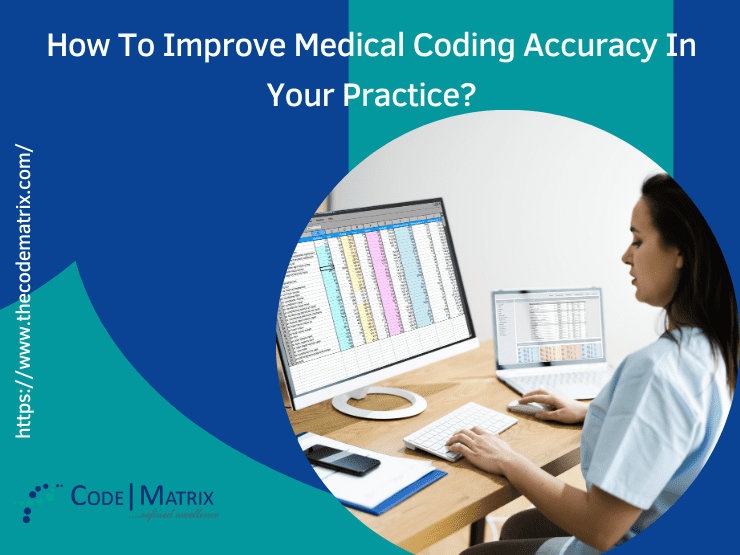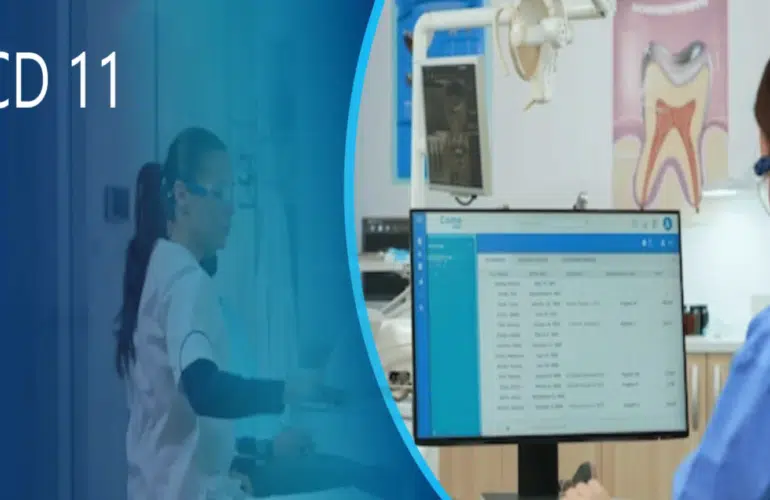Medical coding is the process of taking proper documentation of medical records, such as diagnoses and procedures and assigning numerical codes to them. These codes are used by insurance companies and other payers to determine how much they will reimburse healthcare providers for services rendered. Accurate medical coding is essential for healthcare providers because it ensures that they receive appropriate reimbursement for their services.
Medical coding accuracy is also important because it helps to improve the efficiency and accuracy of patient care. By ensuring that medical codes are correct, healthcare providers can reduce paperwork, streamline processes, and provide more accurate information to other healthcare professionals.
Common Medical Coding Errors
Medical coding errors can lead to significant losses for medical practices, resulting in expensive billing disputes and denials. To ensure accuracy in your practice’s medical coding, it is important to be aware of the most common errors and take steps to prevent them. The most frequent types of medical coding issues include:
Unbundling Codes
Unbundling codes is a key factor in improving medical coding accuracy in any practice. Unbundling refers to the process of correctly assigning multiple codes for multiple related services provided during a single office visit or procedure. Coding unbundling can help improve accuracy, efficiency, and reimbursement for medical practices.
When a patient receives multiple services at one time, it is important to assign the correct order to receive appropriate reimbursement.
Using Outdated Codes
Using outdated codes is another common medical coding error that can lead to inaccurate payment and billing disputes. It is important to stay up-to-date with medical coding changes and regulations, as these often change each year. Healthcare providers must ensure that they are using the most current order to maximize revenue and avoid inaccurate payments.
Misusing Diagnosis Codes
Misusing diagnosis codes is another common medical coding error that can lead to inaccurate reimbursement. When assigning a code, it is important to accurately select the most specific code for the patient’s condition or illness. Inaccurate diagnoses can lead to incorrect reimbursement and billing disputes, so it is essential to double-check all codes before submitting them for reimbursement.
6 Tips to Improve Medical Coding Accuracy
High-Quality Medical Coding is of the utmost importance in any medical practice. The consequences of incorrect coding can range from denied payments to legal action. Medical coders must be highly trained, experienced, and knowledgeable to accurately assign the correct codes to a patient’s medical records.
Here are six tips to improve medical coding accuracy in your practice.
1. Attend Professional Development
Medical coders need to attend professional development courses to stay up-to-date with changes in medical coding. These courses can help coders learn new skills, practice coding techniques and become familiar with the current coding standards.
2. Hire Experienced Coders
Experienced coders are essential for accurate medical coding. It is important to hire experienced coders who have a deep understanding of the medical coding process and the current coding standards.
3. Establish a Quality Assurance Process
Establishing a quality assurance process can help medical practices ensure accuracy in their medical coding. This process should involve auditing records, double-checking codes, and verifying the accuracy of codes before they are submitted for reimbursement.
4. Utilize Technology
Technology can be utilized to improve accuracy in medical coding. Take advantage of technological advancements.
5. Utilize Automated Solutions
Automated solutions can help improve accuracy in medical coding by providing accurate and up-to-date coding information for practitioners. Automated solutions also allow coders to quickly access relevant codes, eliminating the need to manually review codes for accuracy.
6. Implement Documentation Guidelines
Developing and implementing clinical documentation guidelines is essential for accurate medical coding. These guidelines should be designed to ensure that all necessary information is documented to accurately code a patient’s visits.
5 Benefits of Accurate Medical Coding
Accurate medical coding is essential for the successful operation of any medical practice. It is important to ensure that all patient records are correctly coded to ensure accurate billing and accurate reimbursement processes. Accurate coding also helps to improve patient care, as well as provide the necessary data for reporting purposes. Here are some benefits of accurate medical coding:
1) Reduced Risk of Denials
Accurate medical coding can help reduce the risk of denials from insurance companies, as incorrect coding is one of the most common reasons for denied claims.
2) Improved Reimbursement
Accurate medical coding can result in improved reimbursement for services provided, as payments are based on accurate codes.
3) Improved Patient Care
Accurate medical coding helps to ensure that patients receive appropriate and timely care.
4) Reduced Errors
Accurate medical coding helps to reduce errors and inaccuracies in patient re-ensuring that all coding is accurate, can help to avoid billing disputes and reduce the risk of legal action.
5) Improved Reporting
Accurate medical coding helps to improve reporting accuracy by providing reliable data for reporting purposes. This data is essential for monitoring trends in patient care, as well as for research and analysis.
Medical Coding Services
By implementing these practices, healthcare providers can ensure that they are providing accurate and efficient medical coding services, leading to better financial outcomes and higher-quality patient care. If you require medical coding services, get in touch with CodeMatrix MedPartners LLC.




